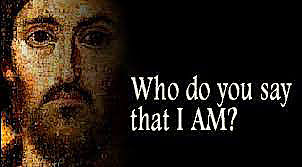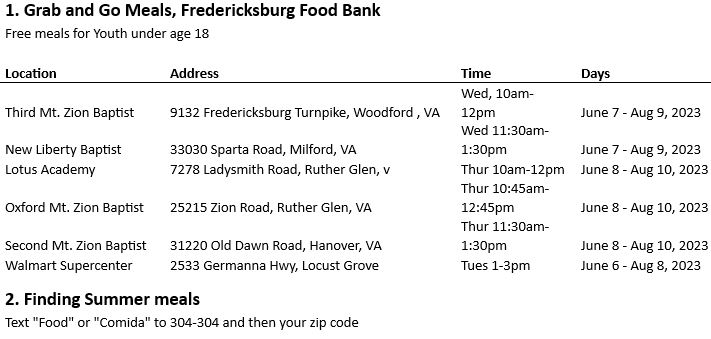Click here to view in a new window.
“Who am I” – Dietrich Bonhoeffer

Dietrich Bonhoeffer was a professing Christian who kept the Christian faith alive during the Adolf Hitler’s rule in Germany. At St. Peter’s we read part of Life Together in Adult Ed.
He was implicated in the bomb plot against Hitler in 1944. Dietrich Bonhoeffer wrote “Who Am I” just one month before he was executed.
“Who am I? They often tell me I stepped from my cell’s confinement Calmly, cheerfully, firmly, Like a squire from his country-house. Who am I? They often tell me I used to speak to my warders Freely and friendly and clearly, As though it were mine to command. Who am I? They also tell me I bore the days of misfortune Equably, smilingly, proudly, Like one accustomed to win.
“Am I then really all that which other men tell of? Or am I only what I myself know of myself? Restless and longing and sick, like a bird in a cage, Struggling for breath, as though hands were compressing my throat, Yearning for colors, for flowers, for the 88voices of birds, Thirsting for words of kindness, for neighborliness, Tossing in expectation of great events, Powerlessly trembling for friends at an infinite distance, Weary and empty at praying, at thinking, at making, Faint, and ready to say farewell to it all?
“Who am I? This or the other? Am I one person today and tomorrow another? Am I both at once? A hypocrite before others, And before myself a contemptibly woebegone weakling? Or is something within me still like a beaten army, Fleeing in disorder from victory already achieved? Who am I? They mock me, these lonely questions of mine. Whoever I am, Thou knowest, 0 God, I am Thine!”
March 4,1946
Lectionary, Pentecost 12, Proper 15, Aug. 20, 2023
I.Theme – God comes to all us, includes all in his mercy and calls us to lead lives of justice

"Jesus and the Canaanite Woman" – Jean Colombe
The lectionary readings are here or individually
Old Testament – Isaiah 56:1,6-8
Psalm – Psalm 67 Page 675, BCP
Epistle –Romans 11:1-2a, 29-32
Gospel – Matthew 15: (10-20), 21-28
Three ingredients come together to create a celebratory mix in this week’s Lectionary: The first is God’s salvation (expressed in terms of justice and mercy); the second is God’s blessing given to those who are saved; and the third is the inclusion of "foreigners" and "outcasts". The expansion of the gospel beyond the boundaries of Judaism does not supersede God’s love for Israel, but reflects God’s love and inspiration of all people. The focus, then, of this week’s worship is on God’s coming to us, welcoming all people, and including all people in God’s mercy, salvation and blessing, while also calling all people to lives of justice.
In Isaiah 5 , God calls God’s people to justice and fairness because God promises to come to them and bring not just God’s people, but also the foreigners and outcasts, to worship and to be blessed by God on God’s mountain.
Psalm 67 is a psalm of praise for God’s blessings and mercy, which calls all nations to join in praising God for God’s saving power.
In Romans 11, the apostle Paul affirms God’s faithfulness to the Jewish people. There is no room for anti-Judaism in Christianity. God’s providential gifts of grace are irrevocable. God has made an eternal covenant with the children of Abraham, Isaac, Jacob, and Joseph. God’s revelation in Christ expands God’s covenant to include all the peoples of the earth. God will have mercy on disobedient people everywhere, whether Jew or Gentile.
The question of being chosen once again is ambiguous. An omnipresent and omni-active God, for whom love is the guiding principle, chooses all creation. No one is left out. This is problematic for those who see the Jewish people and nation, or any other nation, as absolutely unique. As some prophetic writings suggest, Israel was chosen for a mission, to be a light to the Gentiles, bringing God’s love to all peoples.
The gospel reading places Jesus in an unusual light. When a Canaanite woman comes to Jesus to seek healing for her daughter, Jesus puts her off, apparently excluding her because of her ethnicity from God’s healing realm. The woman persists and eventually Jesus relents, apparently impressed by the depth of her faith and her willingness to experience humiliation for the love of her daughter. Jesus cures her daughter from a distance; his energy transcends the boundaries of space.
This story also portrays another kind of transcendence, the transcendence of ethnic and personal barriers for the sake healing and wholeness. Now, there are a number of ways to interpret the encounter of Jesus with the Canaanite woman. At first glance, Jesus appears to succumb to the racist tendencies that characterized the attitudes of many Jewish people toward foreigners. He puts her off because, as a Canaanite, she is unworthy of God’s love. A second interpretation suggests that Jesus is testing her faith, trying to discern how much she loves her daughter and what she is willing to do to secure a healing for her daughter. Finally, a third interpretation asserts that Jesus may be creating a trap for those who see the woman as an inferior outsider. He acts and speaks like a racist, getting their insider assent, and then pulls the rug out from under them by healing the Canaanite woman’s daughter. From this perspective, the encounter is a parable, a reversal of expectations, a turning upside down of socially acceptable racism in light of God’s realm of inclusion and healing.
However, we understand the meaning of the encounter between Jesus and the Canaanite woman, the story portrays Jesus’ eventual inclusion of non-Jewish people into his ministry. God’s healing embraces all people, regardless of gender, ethnicity, race, or sexuality. Mature faith widens the circles of God’s love to go beyond our well-being to embrace and support the various gifts of the earth’s peoples.
Earlier in the readings, Jesus explains that it is not what we eat that defiles us but the evil that is in our hearts. Then he is approached by a Canaanite woman who convinces him, in spite of his initial reluctance, to heal her daughter who is being tormented by a demon.
Back to Jamaica
The Jamaica mission trip participants depart on Aug. 23. Traveling are Ken Pogue, Andrea Pogue, and Laura Carey. The school supply distribution is Sat. Aug 26.

Top left to right – Ken Pogue, Andrea Pogue, Laura Carey
Special thanks to Andrea for arranging the original connection between Victoria Primary School and St. Peter’s in 2021 and for her work this year in planning the school supplies distribution on Sat. Aug. 26. Computer equipment which is needed at the school was added for this distribution.
Peter assumes a new identity

This week is about identity, power and authority of leaders, people and within the growing church. Middle Eastern people were always concerned about how other people regarded them. So identity was important.
Matthew begins his Gospel with a complex, genealogy. That’s another way to get to your identity Genealogies are not just simple accounts of past ancestors. They are ways that we construct identity, ways in which we relate to our past. Jesus knew he was through Matthew’s genealogy. His identity is inextricably linked by Matthew’s genealogy with Abraham and David, with exile and deliverance, with kings and extraordinarily faithful women.
Back to this Sunday’s passage. In the Gospel, up till now Jesus has been teaching the crowds the mystery of the Kingdom in the face of growing hostility from the scribes and Pharisees. Jesus now withdraws with the disciples to begin forming them into his ‘church’.
To have a church he would have to have a congregation. The questions of identity are not just a matter of definition but of formation, not just doctrine but discipleship. In regards to discipleship and church, he needs to know what he has to work with through their understanding of him. He asks who do they think he is in regard to identity. What authority does he have in their minds?
The identity issues needs to be confronted and confirmed. Next week Jesus goes to the predictions of suffering, death, and resurrection.
The reading takes place in in Caesarea Philippi a Roman area. Caesarea Philippi was the site of a Temple built in honor of Caesar Augustus by Herod. On one corner was a shrine to Caesar Augustus. Not far from there you could view statues dedicated to the Roman heroes of old.
The setting is important.. By engaging the disciples he offers a challenge to Roman society.
First, Jesus asks a question, posed all in the 3rd person. “Who do people say that the Son of Man is?” And the answers point to radical prophets who prepare the way for the promised Messiah.
Jesus asks the disciples the same question (v. 15), but this time to the disciples. “Who do you think I am “
It’s another way of saying, “Why are you following me? Why have you left everything you have known?
Peter answers, and in this immediate response we can begin to see the role that Peter plays, for it is not his abruptness that is witnessed here, but rather his primacy. He is the first to understand, know, and confess Jesus as Messiah.
Now, Jesus promptly interprets his answer not as evidence of Peter’s great intelligence, insight or faith, but rather as a gift of grace.
As John Calvin wrote in his commentary, Peter’s “confession is short but it embraces all that is contained in our salvation.” It is all about faithful service.
There are two key symbols present here. “The rock” is the symbolic anchor for the church and is could be Christ or Peter’s insight of Christ. Christ gives Peter “the keys”, the ability to unlock the mysteries of the Kingdom; they may also be a symbol of authority over the Church. Originally, when one came to seek the king’s help or counsel, the servant’s job was to open the door to the king’s house and assist him in reaching the king. Christ’s servants, the ministry, have a similar responsibility to assist those God is calling in coming to their King, Jesus Christ
This is the first time that one of Jesus’ followers calls him “The Messiah,” and the first time he acknowledges it. This passage also adds the connection to the Church”
The turning point of the story is rather that Jesus would build his church on the cracked foundation of a flawed disciple. Jesus gives authority to a group of misfits who more than not don’t get it right
The story doesn’t simply end triumphantly, however, but with a charge for the church to live according to this new kingdom. The church is not to simply stand in victory but is given the power “to bind and loose,” perhaps unleashing the power of forgiveness and grace in the world or heralding the prophetic role of the church in fighting oppression.” “To bind and loose” is a phrase that means to forbid or permit something by an indisputable authority. I
In this passage, Petter has also assumed a new identity. Peter becomes the representative of all the disciples.
Ways to help those in need in Hawaii

->Group Donation
We at St Peter’s can come together as a group to do our part to help with immediate relief efforts in Hawaii. If you would like to donate through St Peter’s, as this part of the Body of Christ, make out a check to St Peter’s and put Hawaii in the memo line. The St Peter’s collection will go to The Diocese of Hawaii to The Bishop’s Pastoral Fund with a note that this is from our church, St Peter’s, here in The Diocese of Virginia. The Diocese of Hawaii will put this money to work through A Cup of Cold Water, the homeless assistance ministry run by the four Episcopal Churches on the island of Maui.
If you would prefer to donate individually online to The Bishop’s Pastoral Fund, click this link. online donations
->Individual Donations
If you would like to donate online through Episcopal Relief and Development, click on this link, https://support.episcopalrelief.org and put US Disaster Fund in the memo line. This group is also working with The Diocese of Hawaii.
Charity Navigator, a website that rates charities in an effort to help people use their donations wisely, has a curated list of charities which are accepting donations to help the people of Hawaii. Go to this link, https://www.charitynavigator.org . Click on Hawaii Wildfires to find their list and ways to contribute to various groups online.
Videos, Pentecost 5, July 2, 2023
Hymn of Praise – Many and Great, O God
Sequence Hymn – Lord, I want to be a Christian
Gospel and Sermon – Rev. Catherine Hicks
Post Communion Prayer and Blessing
Sermon, July 2, 2023, Pentecost 5
Sermon, Proper 8, Year A 2023
Psalm 89:1-4, 15-18, Romans 6: 12-23, Matthew 10:40-42

In a Native American legend recorded for You Tube by the Anasazi Foundation, a grandparent tells his grandchild about two wolves who are at war. The grandparent describes the two wolves.
One is a bad wolf full of anger, envy, jealousy, regret, resentment, judgement, bitterness, hate, spite, cruelty, greed, self-pity, guilt, inferiority, lies, false pride, and ego.
The other wolf, the good wolf, is full of peace, joy, hope, love, serenity, humility, kindness, benevolence and generosity, empathy, truth, compassion, self-control, and faith.
The grandparent places his hand on his grandchild’s shoulder. “These two wolves are at war inside of me, and also inside of you, and every man, woman and child who walks this earth.”
The grandchild thinks for a moment and then asks the grandparent, “Which wolf will win?”
The grandparent replies, “The one you feed.”
Sunday Links, July 2, 2023, Pentecost 5
Village Harvest, June 2023 – higher quarter, lower year to date
Quarter 2, 2023, served more people compared to the same quarter 2020-2022. 262 were served compared to 247 and 240 in 2022 and 2021, respectively (2020 was the Pandemic).
However, due to lower turnout in quarter 1, year to date figures through 6 months 2023 were lower than in the previous 2 years. This year we have served 480 clients compared to 543 and 535 in 2022 and 2021, respectively. Additionally, June 2023 was low at 65 compared to 93 last month. It was the lowest monthly since January’s 60.
The amount of the food available for quarter 2 also exceeded earlier quarter 2 periods from previous years. Quarter 2 we had 3,457 pounds available compared to 3,394 and 3,322 in 2022 and 2021, respectively. However, there was lower year to date food. Year to date was 6,370 pounds as of June, 2023 compared to 7,590 and 7,664 in 2022 and 2021 respectively.
An important statistic is food per client expressed in pounds. Year to date it is 13.30 pounds per client compared to 13.98 in 2022 and 14.33 in 2021, a declining trend. One positive is that it continues to exceed most years from 2016-2019. We served more clients in those earlier years, but the pounds per client was lower.
We provided a handout to all our clients with additional food locations:


Mixture of foods. Catherine with the new handout, Papaya
Pentecost 4, Year A, June 25, 2023
Lectionary, June 25, 2023
I.Theme – Living in a new way

"Calling of the Disciples" – Domenico Ghirlandaio (1481)
The lectionary readings are here or individually:
Old Testament – Jeremiah 20:7-13
Psalm – Psalm 69: 8-11, (12-17), 18-20
Epistle –Romans 6:1b-11
Gospel – Matthew 10:24-39
Today’s readings help us to recognize that God’s strength will always help us as we witness to our faith. In the face of terror, the prophet Jeremiah remembers God’s promises. Paul reminds the Roman community that God’s great gift of salvation overflows freely. In the gospel, Jesus reassures his disciples of their great worth to God.
Midsummer’s Night – June 21-24
Midsummer’s Night, Celebrate Light and community-
We pass Midsummer’s Night in June . European celebrations that accompany the actual solstice, or that take place on a day between June 21 and June 24, and the preceding evening
The Midsummer’s night celebration began in pre -Christian times when it was believed that forces could slip between this world and the next at a time when there was more light than at any time of the year. Fires were lit to ward off the evil spirits.
We may think of Midsummer’s Night in terms of Shakespeare’s play of the same name. Ironically, most of the play takes place in a dark forest in a wild, mysterious atmosphere, rather than in the light, in which the magical elements of Shakespeare’s plot can be played out. One of the subplots involves the brawl of the ferries, Oberon and Titania which creates a disturbance in nature.
Midsummer’s Night is the pagan celebration of the solstice. The Compline service is the Christian celebration. It is more general and can and is said daily by many in the world.
Background to Compline

Compline is one of the 8 services for the day in the Catholic “Liturgy of the Hours”. It was added to the Episcopal Prayer book in 1979
Compline is a service to close the day, an opportunity to give thanks for the joys and graces experienced, a chance to confess the (many) sins committed throughout the day, and the perfect moment to close the day the same way it started: in prayer and asking for God’s protection during the night to come. It is descended from the night prayers said before bed at the end of the monastic round of daily prayer and can be traced back to the 4th century and referenced by St. Benedict, St. Basil, and St. John Chrysostom.
St. Benedict had this to say about the simplicity of Compline: “Let Compline be limited to the saying of three psalms, which are to be said straightforwardly without antiphons, after which let there be the hymn of that hour, a lesson, a versicle, the Kyrie, and a blessing to conclude.”
